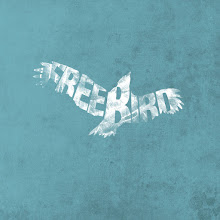When I think back on some of my funnest runs, rides, and swims, it's the new, atypical training days that stand out in my memory. I actively and eloquently remember the day I rode 116 miles on a Friday after work, for example. My lungs burn and my shoulders quiver when I think back to when former Aquacrest coach and all-around swimming master mind David Wright had me do his killer set of alternating sprint 50's and pushups.
David's book, which lays out his 100km/week olympic swimming program
But it's not just the Hyooge training days that stick out in my memory, it's the new experiences. I can remember the first time I ran barefoot on the Florida sand like it was yesterday, the hot, dry Florida sand squeezing between my toes, even though I probably ran less than 3 miles. Even though I biked less than 30 miles, I remember the day I rode my bike on Virginia's beautiful Blue Ridge Parkway, curling through mountains passes and spotting spectacular wildlife, like this bear, Grrrrroowwl!

And it's not just me spouting about new experiences being big in regards to memory. Researchers have found two important points in regards to new experiences and memory formation:
- People's long-term memory is activated by novely
- New experiences can be pleasurable.
If you're not a science dork, you can skip the next paragraph, which provides the scientific support...
Researchers at University College London found that new experiences release beneficial neurotransmitters, such as dopamine, leading researchers to conclude that, “Seeking new and unfamiliar experiences is a fundamental behavioural tendency in humans and animals." (See more here) Also in the UK, researchers have found that the area of the brain responsible for encoding long term memories is activated when humans are exposed to novel experiences (See more here). Finally, researchers have found that the midbrain, which is responsible for motivation and reward processing, responds more to novelty than it does to familiarity (See more here).
So, new experiences make you feel good, and you remember them better than familiar, routine experiences. I hear you blinking, mouth agape, thinking, "pretty sweet, Frey, but what's this gotta do with my bike split at my next Ironman?"
I think we can make a big leap from memory to fitness. If new experiences make better, more pleasurable memories, I think new experiences lead to better training, and more pleasurable training. Better, funner training makes for stronger athletes! Let's look at each piece of this argument:
1) Novel training experiences leads to more pleasurable training...
The connection here is obvious. Novel training experiences are the same as any novel experience. Strike out on a new route on your next run, and your brain will enjoy it more!
2) Novel training leads to better training...
This is another pretty direct conclusion. Your brain will crave any source of pleasurable neurotransmitters, just ask any heroine addict. Presumably, if an athletes brain is craving new training, she will get out there and push for newer courses, more challenging routes. With her body getting hit with new stimuli on a frequent basis, she will develop some freakish strength and endurance.
I have argued above that pleasure from new training would cause athletes to train more, and more training would make stronger athletes. This is demonstrated in the diagram below:
New Training------> Pleasure------> train harder and with more variety------> stronger body
I am going to argue now that there's a third, unknown mechanism by which new experiences will lead to stronger athletes, which I will call the X-Factor.
3) The X-Factor
If new experiences elicit a stronger response from your brain, will new training experiences stimulate a stronger response from your body? New experiences make stronger memories, why shouldn't new training experiences make a stronger body?
What I am saying is demonstrated in the following experiment. Take two groups of athletes. Expose the first to a daily five mile run around a track. Have the second run a daily five miles on a new course. I am saying that group two will become fitter.
See, both groups would have the same training stimulus. I argued initially that pleasurable experiences make a stronger body because they cause an athlete to train harder and more frequently. These two groups would be training the same amount. The ONLY variable would be that group two got to run a new course.
I argue that group two would get fitter, because of the X-factor.
But, I have no proof, just guessing.





0 comments
Post a Comment